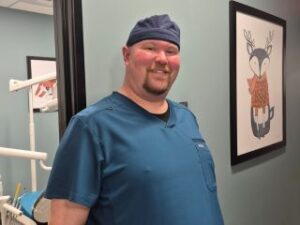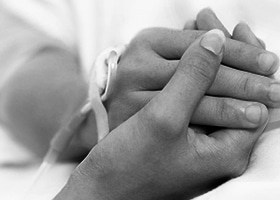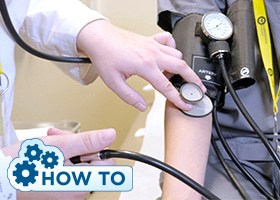 The fight against breast cancer is far from over, but there have been several recent developments that make better treatment, and even a cure, seem within reach. Researchers across the United States are developing medicines and discovering techniques to treat and prevent breast cancer. In fact, so much news has been coming out of the breast cancer research world that it’s hard for everybody – from scientists to doctors to the general public – not to get excited. But at the same time, there are still some alarming trends working against that progress, and they will need to be addressed as cancer prevention and treatment move forward.
The fight against breast cancer is far from over, but there have been several recent developments that make better treatment, and even a cure, seem within reach. Researchers across the United States are developing medicines and discovering techniques to treat and prevent breast cancer. In fact, so much news has been coming out of the breast cancer research world that it’s hard for everybody – from scientists to doctors to the general public – not to get excited. But at the same time, there are still some alarming trends working against that progress, and they will need to be addressed as cancer prevention and treatment move forward.
New cancer detection and prevention techniques
One of the most exciting new developments in breast cancer detection is a genetic test from the company BREVAGen. In a simulated clinical trial, Archimedes Inc., a health care modeling and analytics company, found that the test was particularly effective, especially in terms of cost, when it was used for MRI screenings in people who have an intermediate lifetime risk of developing breast cancer.1 “This Archimedes Model simulation suggests that genetic screening for breast cancer risk in conjunction with MRI can reduce cancer deaths and identifies a population at an intermediate risk near 20 percent for which it is optimally cost effective,” Tuan Dinh, vice president of analytics and modeling at Archimedes, wrote in the company’s study, which was published online in the journal Cancer Research. Doctors and scientists have been increasingly concentrating on detecting breast cancer at its earliest stages, when it is easiest to treat. However, breast cancer is notoriously difficult to find, even on MRIs, so this new piece of the puzzle could take doctors one step closer to being able to head off the disease before it becomes pervasive in patients’ bodies. Pharmaceuticals are also playing a major role in lowering the risk of breast cancer in women. Researchers at the College of London recently reported that their tests on a drug called anastrozole showed it lowered the risk of breast cancer in women who are at high risk of developing cancer by 53 percent, and it did so without the side effects of other, similar drugs.2 “The efficacy is clearly better and we think the side effects are better than tamoxifen,” Dr. Jack Cuzick of King’s College London, who led the study. said in a statement. “There had been lots of concern about aches and pains. Now we can say most of them have nothing to do with the drug.” Advanced science isn’t the only way women at risk of developing breast cancer can stave off its onset. Researchers at Rutgers University recently published a study in The Endocrine Society’s Journal of Clinical Endocrinology & Metabolism that showed tomatoes can play an important role in preventing the disease.3 Eating tomatoes can boost levels of the hormone adiponectin, which in other studies has been associated with lowering the odds of breast cancer in post-menopausal women. The researchers also found that weight-control plays a role in preventing the disease, especially in combination with a tomato-rich diet. “The advantages of eating plenty of tomatoes and tomato-based products, even for a short period, were evident in our findings,” the study’s first author, Adana Llanos, an assistant professor of epidemiology at Rutgers University School of Public Health, said in a statement. “Consuming a diet rich in tomatoes had a larger impact on hormone levels in women who maintained a healthy weight.”
Attempts to raise awareness of breasts cancer
Despite these many advances in the understanding of breast cancer, there is still a long way to go in terms of preventing, treating and curing the disease. One of the most important steps in that effort is increasing awareness of the disease among women who are at risk. Unfortunately, though, there is still a long way to go on that front. Angelina Jolie, one of the biggest movie stars in the world, recently took a drastic step to reduce her chances of contracting breast cancer, and it was hoped that her high profile might raise awareness of the disease around the world. But, as it turns out, according to a study done at the University of Maryland, the preventative double mastectomy she underwent early in 2013 failed to contribute to greater public awareness of the BRCA gene mutation.4 That particular gene is associated with suppressing tumors, and those who have a mutation of either the BRCA1, like Jolie, or BRCA2 gene have a much higher risk of developing breast cancer. The New York Times also recently reported on the gap in patient outcomes between white and black women in the United States who have been diagnosed with breast cancer. According to the Times, on average, white women who are diagnosed with the disease live three years longer than black women who receive the diagnosis. And the explanation for that gap has little or nothing to do with genetics. The Times article helps to illustrate just how far we still have to go on several fronts in the fight against breast cancer. 1 Glatter, Robert, “Novel Genetic Test for Breast Cancer May Guide MRI Screening in Women With Intermediate Lifetime Risk,” Forbes.com, Dec. 19, 2013. http://www.forbes.com/sites/robertglatter/2013/12/19/novel-genetic-test-for-breast-cancer-may-guide-mri-screening-in-women-with-intermediate-lifetime-risk/ 2 Fox, Maggie, “Breast Cancer Drug Can Also Prevent Cancer, Study Finds,” NBC News, Dec. 12, 2013. http://www.nbcnews.com/health/breast-cancer-drug-can-also-prevent-cancer-study-finds-2D11723570 3 O’Brien, Kathleen, “Mangia! Mangia! Rutgers Researchers Find Tomatoes Help Prevent Breast Cancer,” The Star-Ledger, Dec. 20, 2013. http://www.nj.com/news/index.ssf/2013/12/mangia_mangia_rutgers_researchers_find_tomatoes_help_prevent_breast_cancer.html 4 Kemsley, Tamarra, “Angelina Jolie’s Mastectomy Failed to Increase Understanding of Breast Cancer Risk,” Nature World News, Dec. 20, 2013. http://www.natureworldnews.com/articles/5372/20131220/angelina-jolies-mastectomy-failed-to-increase-understanding-of-breast-cancer-risk.htm



